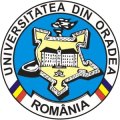The aim of the course is to increase the students’ participation and influence in the EU decision-making process, in general, with a particular focus on the local and regional levels, in their domain of specialization. The course is designed to represent a tool for the students in the moment they are entering the job market – so to be active participants in their domain of specialization (in the public policies cycle and in different sectors – public, private, NGO), at different levels of the EU’s multilevel governance and, especially, at the closest level to them – Romania’s local and regional levels – from the North West Region and its component counties.
Target group:
This course is addressed to the BA students from several programs from the Faculty of History, International Relations, Political Science and Communication Sciences.
Learning objectives:
- to familiarize the students with the main theoretical approaches regarding the place and role of the regional and local levels in the EU’s multilevel governance;
- to familiarize the students with the structured and unstructured interactions among the actors (from different sectors and levels) and with the channels and instruments available to them for participation in the EU’s multilevel governance and for influencing the EU decision-making process, with regard to the regional and local interests, in their domain of specialization;
- to develop competences regarding the use of channels and instruments available to the different actors from the regional and local levels, in order to influence the EU decision-making process, with regard to the regional and local interests, in their domain of specialization.
Structure of the course:
- The regional and local levels – their place and role in the EU’s multilevel governance.
- The EU decision-making process versus national decision-making process (case study: Romania). The place and role of the regional and local levels, and of the national parliaments, in this framework.
- The formulation and implementation of European public policies versus national public policies. The place and role of the regional and local levels in this process (case study: Romania).
- The European, multilevel, active citizenship: local, regional, national, European (case study: active citizenship in Romania).
- The EU’s regional policy (strategies, objectives, financial instruments, rural and urban development, best practices) versus Romania’s regional development policy (objectives, principles, strategies, programs), for the 2014 – 2020 period. Case study: the North-West Region of Romania.
- The application and monitoring of the principles of subsidiarity and proportionality both in the EU decision-making and in the national, regional and local decision-making (case study: Romania and, particularly, the North-West Region of Romania).
- The structured relation between the EU institutions and bodies (European Commission, Council of the European Union, European Parliament, European Court of Justice, Committee of Regions, European Economic and Social Committee) and the regional bodies and local authorities, on the EU issues, with a local impact: legislation, channels, instruments (case study: Romania and, particularly, the North-West Region of Romania).
- The structured relation between the national authorities (government, parliament) and the regional bodies and local authorities, in the national system of coordination of the European affairs and on the EU issues, with a local impact: legislation, channels, instruments (case study: Romania and, particularly, the North-West Region of Romania).
- The interaction patterns between the regional bodies and local authorities, and the national associations of local authorities, on EU affairs: legislation, instruments (case study: Romania and, particularly, the North-West Region of Romania).
- The cooperation framework between the regional bodies and local authorities and the civil society, business enterprises and citizens, on the EU issues, with a local impact: legislation, channels, instruments (case study: Romania and, particularly, the North-West Region of Romania).
- Lobbying the regional and local interests at national and European levels, in the process of influencing the decision-making: legislation, channels, instruments (case study: Romania and, particularly, the North-West Region of Romania).
- The relation between the regional bodies and local authorities, and the local media, regarding the dissemination of the EU issues, with a local impact (case study: Romania and, particularly, the North-West Region of Romania).
Selective bibliography:
- Borras, Susana și Radaelli, Claudio M., „The Politics of Governance Architectures: Creation, Change and Effects of the EU Lisbon Strategy”, în Journal of European Public Policy, vol. 18, nr. 4, 2011.
- Bovens, Mark, “Analysing and Assessing Accountability: A Conceptual Framework”, în European Law Journal, vol. 13, nr. 4, 2007.
- Bouwen, Pieter, “Corporate Lobbying in the European Union: The Logic of Access”, în Journal of European Public Policy, vol. 9, nr. 3, 2002.
- Brezoianu, Dumitru și Oprican, Mariana, Administrația publică în România, București, Ed. CH Beck, 2008.
- Cram, Laura, “The Importance of the Temporal Dimension: New Modes of Governance as a Tool of Government”, în Journal of European Public Policy, vol. 18, nr. 5, 2011.
- Crăciun, Claudiu, “Transformarea guvernării în România. Provocări pentru managementul politicilor”, în Managementul politicilor publice. Transformări și perspective. Claudiu Crăciun și Paul E. Collins (coord.), Iași, Polirom, 2008.
- Druckman, James N., “The Implications of Framing Effects for Citizen Competence”, în Political Behavior, vol. 23, 2001.
- Hörl, Björn, Warntjen, Andreas și Wonka, Arndt, “Built on Quicksand? A Decade of Procedural Spatial Models on EU Legislative Decision – Making”, în Journal of European Public Policy, vol. 12, nr. 3, 2005.
- Iancu, Diana – Camelia, Uniunea Europeană și administrația publică, Iași, Polirom, 2010.
- Ion, Oana – Andreea, Guvernanța Uniunii Europene. Abordări actuale, Iași, Polirom, 2013.
- Ispas, Gabriel Liviu, Uniunea Europeană. Evoluție. Instituții. Mecanisme, București, Universul Juridic, 2012.
- Kjaer, Anne Mette, Guvernanța, Cluj-Napoca, CA Publishing, 2010.
- Nentwich, Michael, “Opportunity Structures for Citizens’ Participation: the Case of the European Union”, în Political Theory and the European Union. Legitimacy, Constitutional Choice and Citizenship. Albert Weale și Michael Nentwich (eds.), Taylor & Francis, 2005.
- Nicolaïdis, Kalypso, „European Demoicracy and its Crisis”, în Journal of Common Market Studies, vol. 51, nr. 2, 2013.
- Nousiainen, Marko și MäKinen, Katja, „Multilevel Governance and Participation: Interpreting Democracy in EU-programmes”, în European Politics and Society, 2014.
- Sauron, Jean-Luc, Curs de instituții europene, Iași, Polirom, 2010.
- Schmidt, Vivien A., “Europeanization of National Democracies: the Differential Impact on Simple and Compund Politics”, în School of Public Policies Working Paper Series, 2003.
- Schout, Adriaan și Jordan, Andrew, „Coordinated European Governance: Self-organizing or Centrally Steered?”, în Public Administration, vol. 83, nr. 1, 2005.
- Tsakatika, Myrto, “Governance vs. Politics: the European Union’s Constitutive ‘Democratic Deficit’”, în Journal of European Public Policy, vol. 14, nr. 6, 2007.
- Tully, James, “A New Kind of Europe?: Democratic Integration in the European Union”, în Critical Review of International Social and Political Philosophy, vol. 10, nr. 1, 2007.
- Winn, Neil, „Who Gets What, When and How? The Contested Conceptual and Disciplinary Nature of Governance and Policy-making in the European Union”, în Politics, vol. 18, nr. 2, 1998.
- Zielonka, Jan, „Plurilateral Governance in the Enlarged European Union”, în Journal of Common Market Studies, vol. 45, nr. 1, 2007.
- Watts, Duncan J. și Dodds, Peter Sheridan, „Influentials, Networks and Public Opinion Formation”, în Journal of Consumer Research, vol. 34, nr. 4, 2007.
- Wimmel, Andreas, “Theorizing the Democratic Legitimacy of European Governance: a Labyrinth with No Exit?”, în Journal of European Integration, vol. 31, nr. 2, 2009.
- Other up-to-date books and articles.







